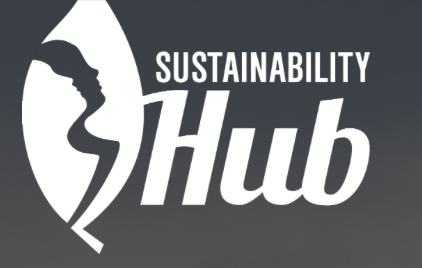Next Conference: Track 5a
For our next conference in July 2025 in Budapest, Hungary, we will have a special focus on the Responsible Organization.
Responsible organizations to promote sustainability: A call for contributions
The concept of responsible organizations emphasizes businesses and institutions to act in an ethical as well as socially and environmentally accountable way. Such organizations promote responsibility to satisfy the needs of both their shareholders as well as local communities and the broader society.
Responsible organizations also play a substantial role on the way to UN SDG 12 (Responsible Consumption and Production) an area where even developed countries seem to suffer to perform well.
To deepen our understanding and create actionable solutions, Track 5a seeks for contributions to the field, with a special focus on case studies and other empirical research. These insights are crucial for advancing responsible practices across different sectors.
Related to Track 5a, a Routledge case study volume call is also under way. This book will collect real-world examples and best practices. We encourage researchers, practitioners, and academics to contribute and share their findings to help shape the future of responsible organizational behavior.
News
Current trends
Driven by a growing awareness of the dangers of the climate crisis and of the consequences of the increasing pollution, consumers should become one of the main forces of change in the direction of a new sustainability era.
According to the results of a 2019 survey from Accenture, more than half of consumers said they would pay more for sustainable products designed to be reused or recycled.
The survey of 6,000 consumers in 11 countries across North America, Europe and Asia found that while consumers remain primarily focused on quality and price, 83% believe it’s important or extremely important for companies to design products that are meant to be reused or recycled. Nearly three-quarters (72%) of respondents said they’re currently buying more environmentally friendly products than they were five years ago, and 81% said they expect to buy more over the next five years.
Call for Papers
Responsible Organization; an international perspective
We are aiming for a Routledge ISDRS book with different perspectives on the topic of Responsible Organization by chapters written by universities/members affiliated with the ISDRS entailing there local perspectives and experiences on the topic or Responsible Organization. After an exploratory meeting during the 2024 Nepal conference, we will organize an available to all workshop on manuscripts during the Budapest conference.
PAST SPECIAL ISSUES
SUSTAINABILITY – MDPI – ISSN: 2071-1050
Special Issue "Sustainable Consumption and Production by Upcycling: Advances in Science and Practices"
Journal of Consumer Behaviour – John Wiley & Sons Ltd - Online ISSN: 1479-1838
Special Issue: Consumer Behaviour and Environmental Sustainability
Who are we?
Who are we?
Prof Arunaditya Sahay
FORE School of Management, New Delhi, India
arun.sahay@fsm.ac.in
Dr Sjors Witjes
Radboud University, The Netherlands.
sjors.witjes@ru.nl
Dr Harangozó Gábor
Corvinus University, Budapest, Hungary
gabor.harangozo@uni-corvinus.hu
Related SDGs
Routledge & Earthscans' Sustainability Hub
ind useful essays, free books and articles, case studies and more at our partner's website:
Past Conference
Kuala Lumpur, Malasia
5a Corporate Sustainability and CSR
Knowledge Resources
GENERAL WEBSITES
UN - Goal 12: Ensure sustainable consumption and production patterns
UN – SDG Knowledge Platform – Goal 12
European Union Science Hub - Sustainable production and consumption
ARTICLES
Harvard Business Review, The Elusive Green Consumer, July-August 2019
Wang, P. Ghadimi, M.K. Lim, M.-L. Tseng, A literature review of sustainable consumption and production: a comparative analysis in developed and developing economies
Clean. Prod., 206 (2019), pp. 741-754, 10.1016/j.jclepro.2018.09.172
V.S.C. Tunn, N.M.P. Bocken, E.A. van den Hende, J.P.L. Schoormans, Business models for sustainable consumption in the circular economy: an expert study
Clean. Prod., 212 (2019), pp. 324-333 10.1016/j.jclepro.2018.11.290
N.M.P. Bocken, R. Mugge, C.A. Bom, H.J. Lemstra, Pay-per-use business models as a driver for sustainable consumption: evidence from the case of HOMIE
Clean. Prod., 198 (2018), pp. 498-510, 10.1016/j.jclepro.2018.07.043
Viciunaite, F. Alfnes, Informing sustainable business models with a consumer preference perspective
Clean. Prod., 242 (2020), 10.1016/j.jclepro.2019.118417
O'Rourke, A. Ringer, The Impact of Sustainability Information on Consumer Decision Making
Journal of Industrial Ecology, Vol.20 Issue 4, August 2016 https://doi.org/10.1111/jiec.12310
Phipps et al., Understanding the inherent complexity of sustainable consumption: A social cognitive framework
Journal of Business Research, 66 (8) (2013), pp. 1227-1234 https://doi.org/10.1016/j.jbusres.2012.08.016
